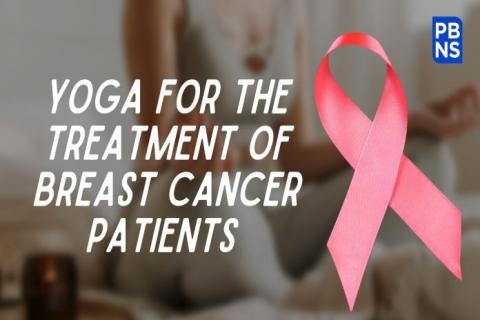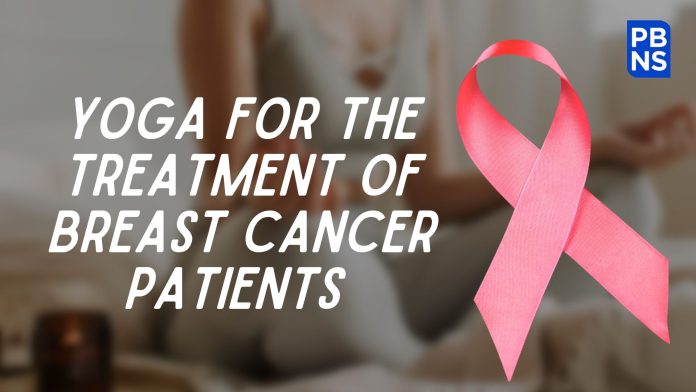Yoga to mitigate chances of Recurrence & Death in Breast Cancer: Study

A recent study conducted by Tata Memorial Centre( TMC) shows that the inclusion of Yoga in the treatment of breast cancer patients could be highly beneficial.

Breast cancer is one of the most common cancers affecting women not only in India but globally, and continues to have a large impact on the global number of cancer deaths. From being fourth on the list of most common cancers in India during the 1990s, it has now moved to first.
As per a study conducted by Globocon 2020, the burden from breast cancer is predicted to increase to over 3 million new cases and 1 million deaths every year because of population growth and ageing alone by 2040. Moreover, it is being increasingly diagnosed at a younger age (almost a decade earlier) in India than in the West.
The key is, breast cancer is not like other cancers that take lives away, it is completely curable and can even be prevented. The recent study by Tata Memorial Hospital shows that when practised with rigour and perseverance, Yoga has proved its superiority in maintaining an excellent quality of life and has also numerically reduced the risk of recurrence and death by 15%.
From India to the World, Yoga – a traditional remedy
The study was presented by Dr Nita Nair in a SPOTLIGHT paper at the San Antonio Breast Cancer Symposium (SABCS), one of the most prestigious breast cancer conferences in the world held annually in the USA. The paper presented the results of a landmark breast cancer study testing effect of YOGA as a complementary therapy in women undergoing treatment for breast cancer.
This research has proven to be the first example of an Indian traditional remedy being tested in a rigorous western design of the randomized study with robust sample size.
For the purposes of this study, yoga intervention was carefully designed with inputs from yoga consultants, clinicians as well as physiotherapists to suit the needs of breast cancer patients and survivors. Different phases of their treatment and recovery were kept in focus to drive an overall result of the effects of Yoga.
The Yoga protocol used in the trials included gentle and restorative yoga postures (asana) with regular periods of relaxation and pranayama, implemented through classes by qualified and experienced yoga instructors.
Yoga – Not a Cure but a LIFESTYLE
Bhagvat Gita entails that ‘Yoga is the journey of the self, through the self, to the self’. It comprises physical, mental and spiritual practises that ultimately promote self-healing. Yoga, in its philosophy and practice, is not a cure but a lifestyle.
For long, the scientific rigour behind the benefits of Yoga has been missing in the mainstream areas of R&D. The first randomised trial on Yoga was published in The Lancet by Patel and North in 1975 which found that Yoga was more effective than relaxation for reducing high blood pressure. Though the number of yoga studies has dramatically increased since then, the sample needs to be increased and maximised to derive better results.
In the bottom line, Yoga studies indicate the practice to be a lifestyle that can help individuals lead a healthier life. Emerging research suggests that yoga can increase body awareness or attention to the sensations and the mechanisms of the human body.
Breast Cancer raises a huge amount of anxiety in women which is twofold, the first fear of cancer with a threat to life and the second worry due to side effects of treatment and coping with it. WHO says that there are more lost disability-adjusted life years (DALYs) by women to breast cancer globally than any other type of cancer.
The study conducted by TMC is the first one where the long-term benefits in quality of life have been noted with the addition of yoga for women undergoing treatment for breast cancer. It has been noted that Yoga is a low-risk, low-cost therapy that improves day-to-day activity, including pain, fatigue and quality of life in women with breast cancer.

